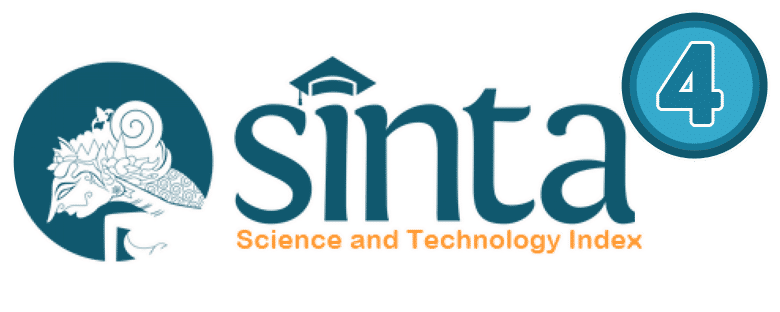The Effect of Information Services Through Documentary Film Media on Social Media Addiction in Students
DOI:
https://doi.org/10.24114/icp.v4i2.60532Keywords:
Information services, Social Media Addiction, Media Documentary Film.Abstract
This study aims to determine the effect of information services through documentary films on social media addiction in Angkasa Lanud Soewondo Junior High School students, the sample in this study were 27 students in class VII A. This type of research is quantitative research with experimental methods, namely one group pretest-posttest degin, data collection techniques in this study are using observation, documentation and questionnaires totaling 27 items. Based on the results of the Paired Sample Test hypothesis using SPSS 25.0, the ttable is 2.052, then tcount> ttable (9.315> 2.052). Then Ha is accepted and Ho is rejected. Thus it can be concluded that there are differences in social media addiction for the Pre Test and Post Test, so it can also be concluded that "there is an effect of information services through documentary film media on social media addiction in Angkasa Lanud Soewondo Junior High School students", while the amount of influence is 92.16%. Thus Information Services through documentary film media have an influence of 92.16% on social media addiction.References
Alavi, S. S., Maracy, M. R., Jannatifard, F., & Eslami, M. (2011). The effect of psychiatric symptoms on the internet addiction disorder in Isfahan™s university students. Journal of Research in Medical Sciences, 16 (6), 793“ 800.
Anderson, I. A., & Wood, W. (2021). Habits and the electronic herd: The psychology behind social media™s successes and failures. Consumer Psychology Review, 4(1), 83“99. https://doi.org/10.1002/arcp.1063
Brevers, D., & Turel, O. (2019). Strategies for self-controlling social media use: Classification and role in preventing social media addiction symptoms. Journal of Behavioral Addictions, 8(3), 554“563. https://doi.org/10.1556/2006.8.2019.49
Kircaburun, K. (2016). Self-Esteem, Daily Internet Use and Social Media Addiction as Predictors of Depression among Turkish Adolescents. In Journal of Education and Practice (Vol. 7, Issue 24, pp. 64“72). www.iiste.org
Kuss, D. J., & Griffiths, M. D. (2011). Online social networking and addiction-A review of the psychological literature. International Journal of Environmental Research and Public Health, 8(9), 3528“3552. https://doi.org/10.3390/ijerph8093528
Kuss, D. J., & Griffiths, M. D. (2017). Social networking sites and addiction: Ten lessons learned. International Journal of Environmental Research and Public Health, 14(3). https://doi.org/10.3390/ijerph14030311
Longstreet, P., & Brooks, S. (2017). Life satisfaction: A key to managing internet & social media addiction. Technology in Society, 50, 73“77. https://doi.org/10.1016/j.techsoc.2017.05.003
Maskun, M., Sumargono, S., Pratama, R. A., & Maydiantoro, A. (2021). The Effectiveness of Historical Documentary Films as Information Technology in Improving Student Learning Outcomes. International Journal of Education and Information Technologies, 15, 183“190. https://doi.org/10.46300/9109.2021.15.19
Mulyadi. (2016). Bimbingan Konseling Di Sekolah Dan Madrasah (Endang (ed.); 1st ed.). Prenadamedia Group.
Nugroho, V. D. (2020). Pengaruh Layanan Informasi Terhadap Dampak Negatif Penggunaan Media Sosial Bagi Siswa Kelas Viii Di Smp Negeri 1 Matesih Kabupaten Karanganyar Tahun Pelajaran 2018 / 2019. 6(1), 1“10.
Nursalam, N., Octavia, M., Tristiana, R. D., & Efendi, F. (2019). Association between insomnia and social network site use in Indonesian adolescents. Nursing Forum, 54(2), 149“156. https://doi.org/10.1111/nuf.12308
Prayitno. (2017). Konseling Profesional Yang Berhasil (1st ed.). Rajawali Pers.
Rikarno, R. (2015). Film Dokumenter Sebagai Sumber Belajar Siswa. Ekspresi Seni, 17(1). https://doi.org/10.26887/ekse.v17i1.71
Saufi, I. A. M., & Rizka, M. A. (2021). Analisis Pengaruh Media Pembelajaran Film Dokumenter Terhadap Motivasi Belajar Siswa. Jurnal Teknologi Pendidikan : Jurnal Penelitian Dan Pengembangan Pembelajaran, 6(1), 55. https://doi.org/10.33394/jtp.v6i1.3626
Sugiyono. (2016). Metode Penelitian Pendidikan. Alfabeta.
Throuvala, M. A., Griffiths, M. D., Rennoldson, M., & Kuss, D. J. (2019). A ˜control model™ of social media engagement in adolescence: A grounded theory analysis. International Journal of Environmental Research and Public Health, 16(23). https://doi.org/10.3390/ijerph16234696
Tohirin. (2015). Bimbingan Dan Konseling Di Sekolah Dan Madrasah (Berbasis Integrasi) (7th ed.). PT RajaGrafindo Persada.
Tutgun-Ãœnal, A., & Deniz, L. (2015). Development of the Social Media Addiction Scale. AJIT-e Online Academic Journal of Information Technology, November, 51“70. https://doi.org/10.5824/1309- 1581.2015.4.004.x
Utaminingsih, S. (2020). The Documentary Films as Learning Media for Education of Pancasila and Citizenship. International Journal of Education and Research, 8(11), 257.
Van Den Eijnden, R. J. J. M., Lemmens, J. S., & Valkenburg, P. M. (2016). The Social Media Disorder Scale: Validity and psychometric properties. Computers in Human Behavior, 61, 478“487. https://doi.org/10.1016/j.chb.2016.03.038
Zhao, N., & Zhou, G. (2021). COVID-19 Stress and Addictive Social Media Use (SMU): Mediating Role of Active Use and Social Media Flow. Frontiers in Psychiatry, 12(February), 1“8. https://doi.org/10.3389/fpsyt.2021.635546
Downloads
Published
How to Cite
Issue
Section
License
Copyright (c) 2024 Awang Normalanda Sekartresna, Sri Ngayomi Yudha Wastuti, Sri Ngayomi Yudha Wastuti

This work is licensed under a Creative Commons Attribution-ShareAlike 4.0 International License.
Authors who publish with this journal agree to the following terms:
- Authors retain copyright and grant the journal right of first publication with the work simultaneously licensed under a Creative Commons Attribution License that allows others to share the work with an acknowledgement of the work's authorship and initial publication in this journal.
- Authors are able to enter into separate, additional contractual arrangements for the non-exclusive distribution of the journal's published version of the work (e.g., post it to an institutional repository or publish it in a book), with an acknowledgement of its initial publication in this journal.
- Authors are permitted and encouraged to post their work online (e.g., in institutional repositories or on their website) prior to and during the submission process, as it can lead to productive exchanges, as well as earlier and greater citation of published work.







